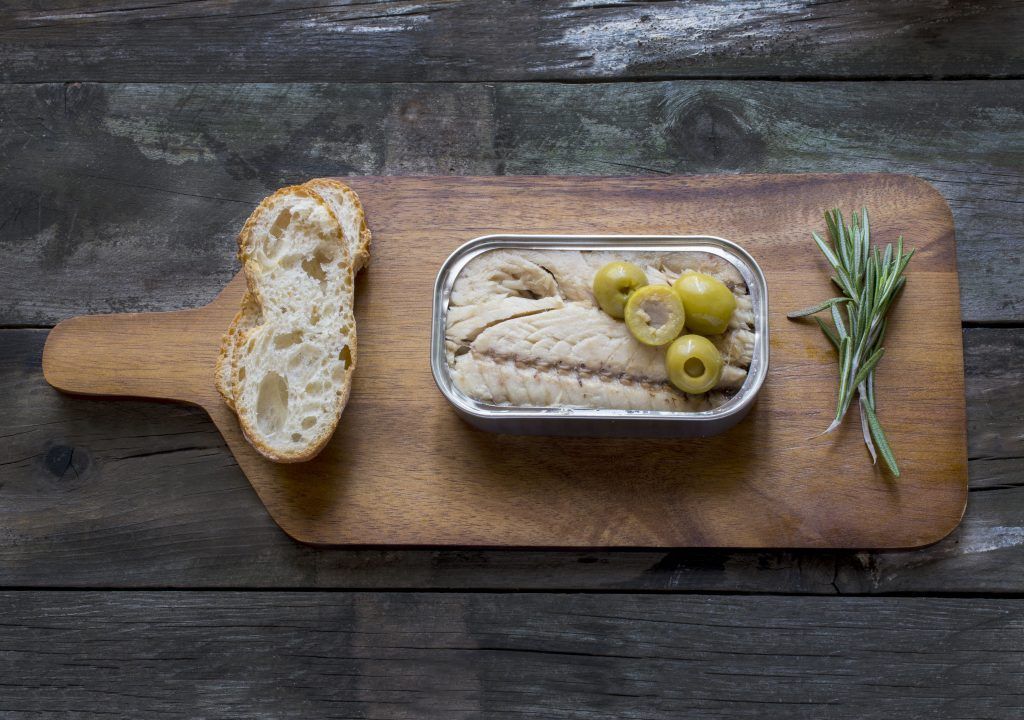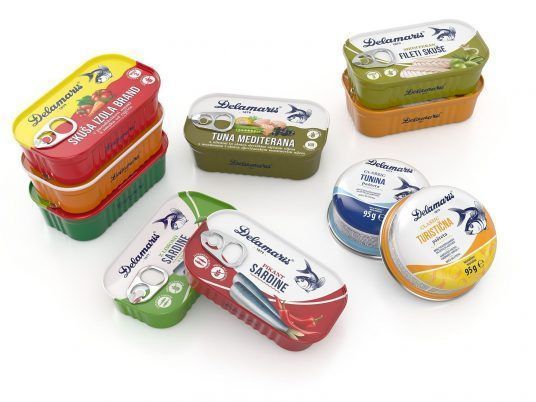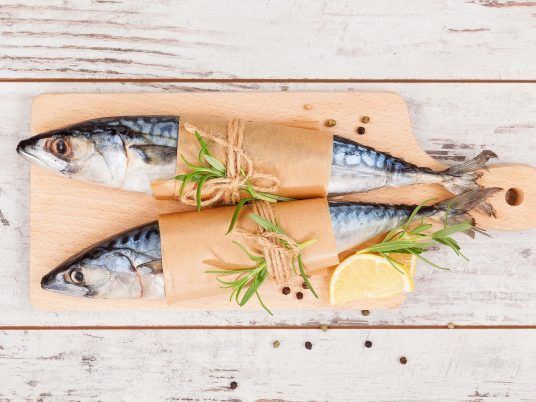Delicious fish products with vegetables or in oil and fish pâtés are popular ingredients in cuisine no matter the time of the day and recognised for their beneficial effect on our health. In its more than 140 years existence, Delamaris has created a wide range of inspirational fish flavours to provide variety to active families without cooking.
The average European consumes 25.10 kg of fish or seafood a year, which is almost 4 kg more than in the rest of the world. Consumption varies greatly in the EU: from 4.80 kg per person in Hungary to 55.90 kg in Portugal. It has been found that people in Slovenia only eat a little over 10 kg of fish per year, which is well below the European average.
Fish is the most important source of vitamin D in balanced diets. Research has found that approximately 80% of adults do not have enough vitamin D in their bodies between November and April; this vitamin plays an important role in body function and immune response. (Source: Prehrana.si, supported by the National Institute of Public Health and the Nutrition Institute).
Preliminary research results show that Slovenians on average consume approximately 3–4 micrograms of vitamin D per day. (Source: Expert opinion on the safety of consuming food supplements containing high amounts of vitamin D in daily dosage, exceeding the recommended daily intake; NIPH). The recommended daily intake of vitamin D for adults is 5 μg according to D‑A-CH (sun exposure) recommendations and Regulation (EU) No 1169/2011 (EU*). In the case of complete endogenous vitamin D formation absence in the skin, this value is higher, that is, 20 μg/day, which also applies to children, pregnant women and breastfeeding mothers. Source: https://www.prehrana.si/Ingredients-zivil/vitamini/vitamin‑d

Delamaris products contain up to seven different types of vegetables prepared using a special fermentation procedure. Thanks to our selected vegetable combinations, our fish delicacies with vegetables include a higher content of vitamin D.
An analysis of Delamaris products has shown that Delamaris Tourist Pâté is a very rich source of vitamin D; red in colour because of its integral carrots and tomato sauce, this pâté has been a popular breakfast choice for generations thanks to its great flavour. In addition to its excellent taste, people like it because of its high vitamin D content of up to 2.7μg/100g. If you’re looking for a rich source of vitamin D and you like Adriatic sardines, we recommend Delamaris Sardines with Lemon, which contains 2.35μg/100g of vitamin D. Let’s compare this to mackerel, which is also a rich source of this vitamin: 100g of mackerel fillet in sunflower oil contains 1.7μg of vitamin D. Our traditional mackerel with vegetables, which can be an excellent additional meal during strenuous physical activity or a perfect experience when you get a moment to yourself, we recommend our Izola Brand (125g) with seven types of vegetables, as 100g of it contains as much as 2.2μg of vitamin D. Delamaris analyses its products in totality, that is, their fish, sauce, oil and vegetables together.
Read more

So many flavours! Which one to choose?
We have a wide range of different flavours for you. There’s something for everyone. You can choose tuna or mackerel, with or without added vegetables and tomato sauce. Are you ...

What kinds of fish swim in Delamaris’ cans?
Mackerel (Lat. Scomber spp.), used for products that combine fish and vegetables, in fillet form or in our Tourist pâté, is a blue fish caught all over the world. It ...

We’re proud of our fish can’s rich history
Slovenian trademarks are the product of the diligent hands of many generations proudly creating the future. Delamaris is a collection of stories and flavours, and our knowledge and tradition of ...

